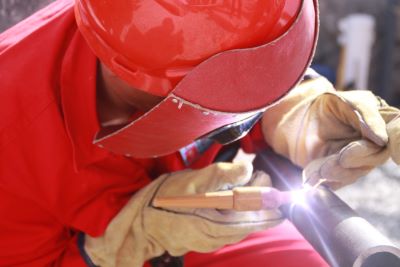Essential Oil Rig PPE to Protect Workers

Working on an oil rig is one of the most hazardous occupations. In a recent five-year period, 489 oil and gas extraction workers were killed on the job, as reported by OSHA.
Proper, fire-resistant safety gear is essential for oil rig workers, who face a variety of hazards and dangerous conditions, including:
-
- Explosions and fires
- Chemical exposure
- Falls
- Confined spaces
- Vehicle accidents
- Struck-by, caught-in, and caught-between accidents
What Types of PPE Should Every Oil Rig Worker Have?
Anyone who works on an oil rig should have the right personal protective equipment (PPE), and employers have a duty to provide it. Safety gear should protect the following areas:
PPE for the Head, Face, and Eyes
Every worker should have a hard hat to protect the head from injury. Workers should have eye protection – safety glasses with side shields or impermeable goggles — if they are exposed to flying particles; gases or vapors; molten metals; acidic, caustic, or hazardous liquids; or light radiation. Face shields can protect the entire face from chemicals and flying objects, but they are not a substitute for safety glasses or goggles.
PPE for the Hands
Drilling personnel need gloves to protect their hands from cuts and abrasions. Workers should wear gloves when handling wire rope or cable and to protect the hands from contact with sharp edges on drilling and sampling tools.
PPE for the Body
Insulated rubber boots help protect workers from electric shock. Leather leggings worn over or above boots can provide protection from molten metal and sparks. Neoprene or Nitrile boots can protect against petroleum products and chemicals. Workers in areas with toxic gases or vapors need respirators to purify the air, with cartridges designed to filter out particles and chemicals, including acid gases and organic vapors.
How Important Is the Right Type of Harness to Prevent Falls?
Falls are a leading cause of death for oil rig workers. Fatal falls occur among workers handling pipe from the derrick board, assembling a drilling rig at a well site, or dismantling a drilling rig to prepare it for transport. To prevent fall injuries and fatalities, safety harnesses must be worn for any work done above three feet on the mast. Workers must put them on before leaving the ground and keep them on until they return to the ground safely. For any work done at a height of more than six feet, fall protection should also include guardrails and/or a personal fall arrest system.
In addition to a body harness, anchor points must be installed in various locations and capable of supporting a 5,000 pound load. Workers also need connectors to secure their body harnesses to anchor points. Self-retracting lifelines and shock absorbing lanyards are commonly used connecting devices. A harness must be connected to an anchor point at all times to provide proper fall protection.
Why Is It Essential to Speak with an Experienced Dallas Oil Industry Accident Attorney?
Workers can be seriously injured by oil rig hazards. They may require hospitalization, extensive medical treatment, and time away from work. It is important to have a team of Texas injury attorneys on your side who are well-versed in the laws affecting oil rig accidents, with experience fighting against large companies. Our Dallas personal injury lawyers can investigate your accident to determine what caused it and who is responsible.
At The Lenahan Law Firm, we have built our reputation on fighting big companies and achieving excellent results for our clients. We have extensive experience representing people who have been catastrophically injured by negligent companies and individuals. We offer a free consultation with no time limit. Call us at (214) 295-1008 to find out how we can help.